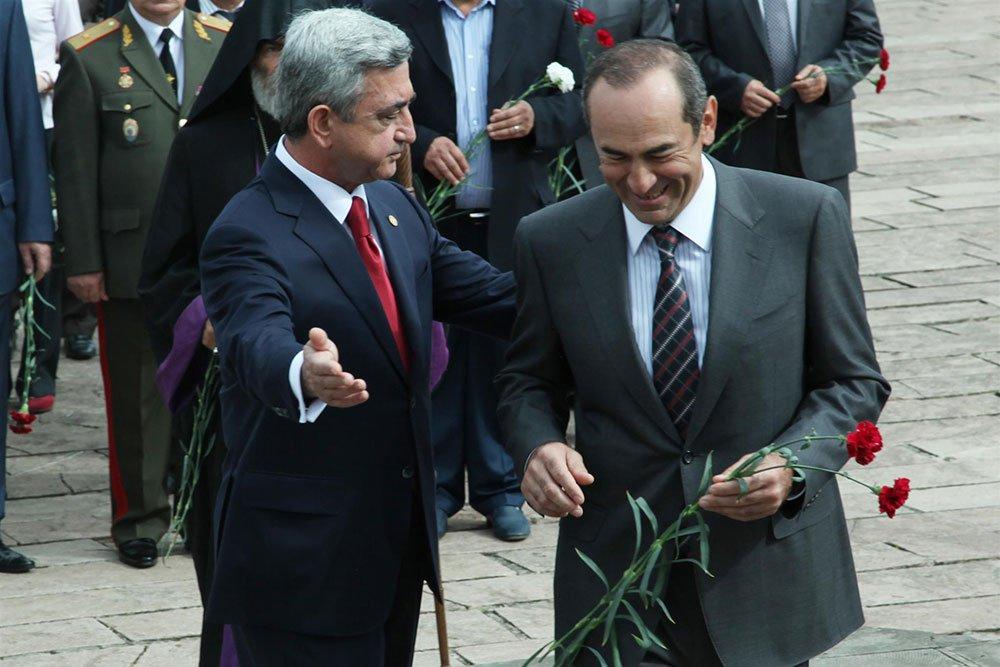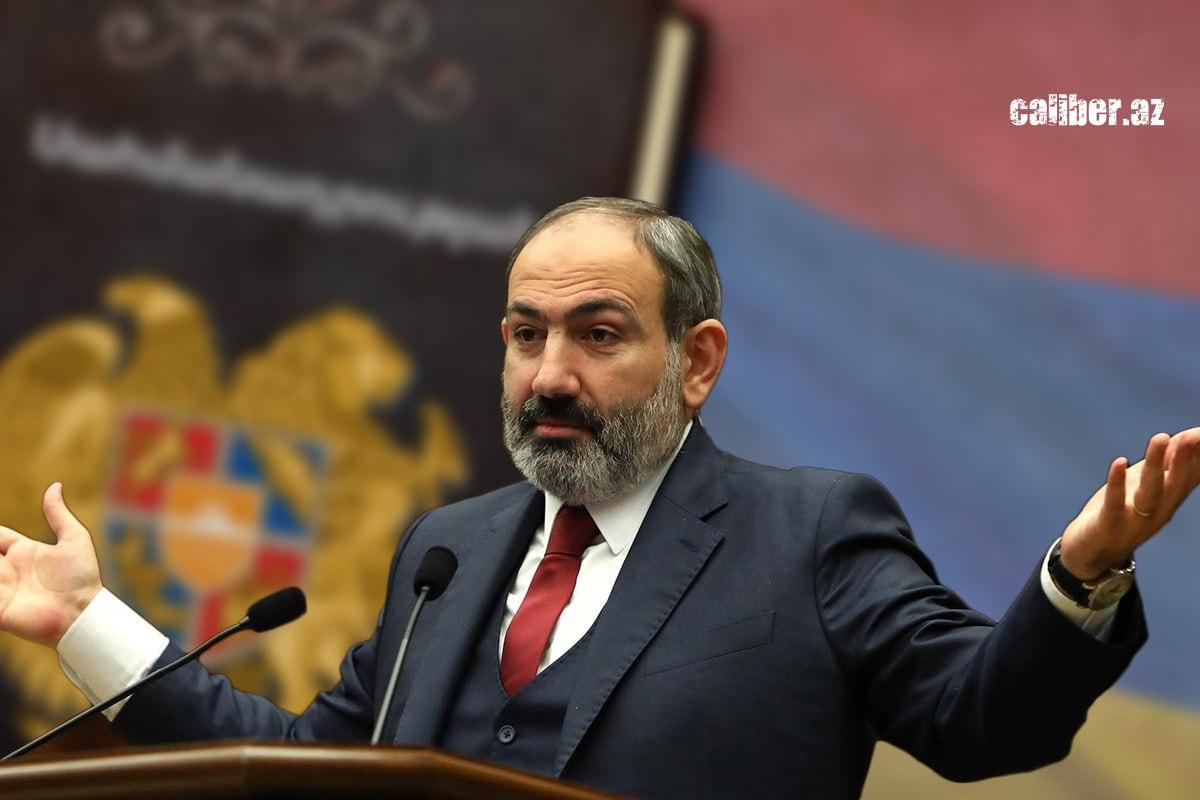Yerevan's constitutional maneuvering: Hurdle to peace with Baku Hard-won normalisation process at risk
On June 4, the Armenian Foreign Minister Ararat Mirzoyan made a statement in the country's National Assembly regarding the differences in the constitutions of Armenia and Azerbaijan. He mentioned that both countries see each other's constitutions as obstacles to long-term peace, but amending them is not currently on the agenda of Armenian-Azerbaijani negotiations.
Hence, official Yerevan sought to establish a semblance of equivalence in constitutional claims, aiming to offset the issue of the Armenian constitution. This strategy seemingly aimed at pressuring Baku to retract its demand for Yerevan to remove territorial claims to Azerbaijan from Armenian legislation. Moreover, amidst public protests, Yerevan also endeavours to present itself to the electorate as a formidable negotiator capable of imposing conditions on Azerbaijan. In essence, Pashinyan and his team aim to achieve dual objectives with this approach.
However, the debate surrounding the Constitution of Azerbaijan appears to be unfounded. Yerevan has previously criticized the preamble of the Azerbaijani Constitution, which references the Constitutional Act of the Republic of Azerbaijan on State Independence (October 18, 1991). This act establishes the continuity and legal succession of the Republic of Azerbaijan, which declared independence on May 28, 1918. Article 2 of the Independence Act explicitly states: "The Republic of Azerbaijan is the successor of the Republic of Azerbaijan, which existed from May 28, 1918, to April 28, 1920."
Yerevan expresses concerns over what they perceive as Azerbaijan's territorial ambitions towards Armenia, given that the territory of the Azerbaijan Democratic Republic (ADR) historically encompassed parts of modern-day Armenia. While Yerevan rejects this interpretation, citing alleged flaws in Azerbaijan's historical narrative and constitutional interpretations, such arguments lack substantive basis. The ADR's constitutional framework does not contain provisions regarding territorial claims but rather emphasizes the continuity of statehood traditions. Focusing on such minutiae risks perpetuating endless disputes.
In the context of Armenian-Azerbaijani reconciliation, the primary concern should be the explicit presence or absence of direct territorial claims against one another. As evident from Azerbaijani legislation, there are no assertions of territorial claims. Conversely, the Declaration of Independence of Armenia, referenced in the preamble of the RA Constitution, overtly declares the former Nagorno-Karabakh Autonomous Region as an integral part of Armenia.
Moreover, based precisely on the relevant provisions of the Declaration of Independence and the Constitution, the Armenian Parliament adopted a decision of July 8, 1992, which states that any international or internal document that refers to the "Nagorno-Karabakh Republic’" as part of Azerbaijan is unacceptable to Armenia.

In 1998, referring to the above-mentioned paragraphs of the Constitution and the Declaration of Independence, Robert Kocharyan, who did not quite fulfil the criteria of a presidential candidate due to problems with citizenship and residence in the country, was admitted to the elections. In other words, Armenian legislators and judges proved in practice that these provisions are not speculative, but are direct instructions for action. Moreover, Armenia's Declaration of Independence also contains territorial claims to Turkey: "The Republic of Armenia supports the cause of international recognition of the Armenian genocide of 1915 in Ottoman Turkey and Western Armenia". Let's put aside the issue of the so-called "Armenian genocide" and pay attention to the introduction of a certain "Western Armenia" into the legal realm. Armenian legislators, driven by fervent nationalist sentiments, have attributed this term to the expansive territories of Eastern Anatolia.
To summarise, we can conclude that it is the Armenian Constitution that is an obstacle to the peace process, while the Azerbaijani Constitution is not. The protests against the delimitation, which is absolutely legal from the point of view of Armenian legislation, have shown that the revanchist forces will not accept any peace treaty with Azerbaijan, as it will contradict the Armenian Constitution. Moreover, there is a high probability that the judges of the Constitutional Court will be forced to declare this treaty null and void. Azerbaijan cannot afford to preserve the possibility of reanimating revanchist sentiments in Armenian society. There must be a guarantee that Armenia's territorial claims against Azerbaijan will not be repeated.
Therefore, Baku makes a fair demand to Yerevan to change the legislation. Such a change could serve as the above-mentioned guarantee. Prime Minister Pashinyan understands all of the above. It is not without reason that he himself raises the issue of a real, not mythical Armenia. As we remember, he even acknowledged the destructive role of the provisions of Armenian legislation containing territorial claims to neighbours, comparing them to a red rag for a bull. However, it's evident that once authorities make a statement or take a certain position, reversing course or contradicting themselves swiftly isn't straightforward.

One can understand Yerevan's desire to play a give-and-take game with public opinion, even against the backdrop of protests, but such games are fraught with the risk of not being able to win back. At some point, and it is better to do it sooner rather than later, the Pashinyan government needs to muster the enormous will to consistently implement constitutional reforms. It is these that will end the enmity between Azerbaijan and Armenia. The sooner Armenian society finds the strength to change the basic law and other legislation, the sooner a peace treaty can be signed. The desire to artificially "mirror" fair demands creates distrust in Baku towards its vis-à-vis and an unfavourable atmosphere around the hard-won normalisation process.








